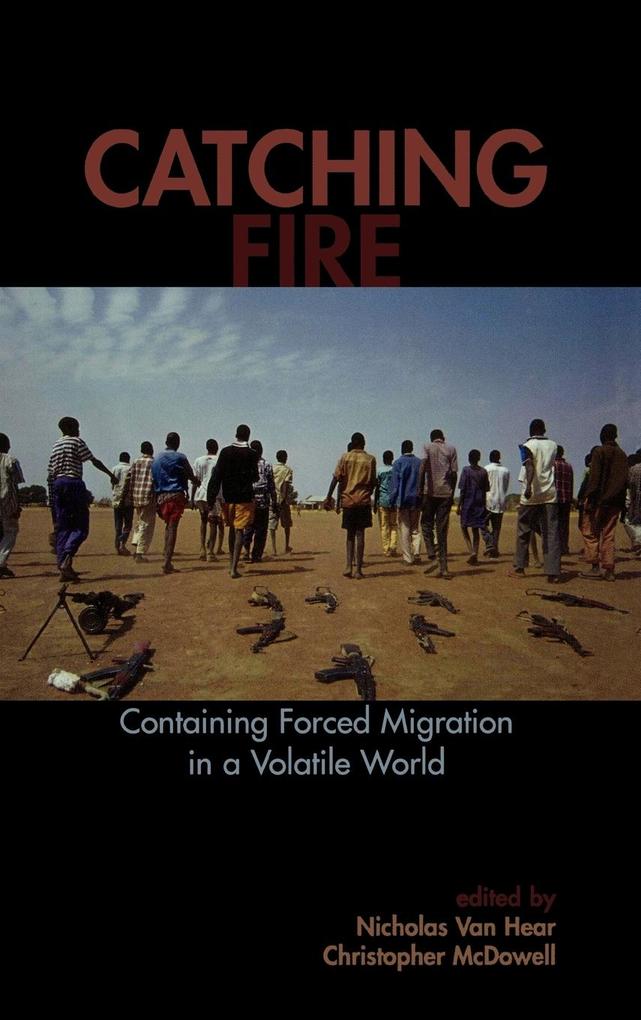
Zustellung: Mi, 08.01. - Sa, 11.01.25
Versand in 1-2 Wochen
VersandkostenfreiBestellen & in Filiale abholen:
Catching Fire provides for the first time an in-depth analysis of political and humanitarian catastrophes in which forced migration characterizes the complexity of both the emergency and the response. The book examines forced migration both within borders and beyond borders, giving attention to the complex combination of circumstances in which refugees often find themselves and the impact of relief programs.
Inhaltsverzeichnis
Chapter 1 Introduction Chapter 2 Burundi: A Case of Humanitarian Neglect Chapter 3 From Complex Displacement to Fragile Peace in Sri Lanka Chapter 4 Protracted Displacement in Colombia: National and International Responses Chapter 5 Afghanistan's Complex Forced Migration Chapter 6 Georgia's Forced Migrants Chapter 7 Displacement, Return, and Justice in the Creation of Timor Leste Chapter 8 Conclusion: Recasting Societies in Conflict
Produktdetails
Erscheinungsdatum
24. Februar 2006
Sprache
englisch
Seitenanzahl
276
Reihe
Program in Migration and Refugee Studies
Herausgegeben von
Christopher Mcdowell, Nicholas Van Hear
Verlag/Hersteller
Produktart
gebunden
Gewicht
603 g
Größe (L/B/H)
235/157/21 mm
Sonstiges
HC gerader Rücken kaschiert
ISBN
9780739109236
Entdecken Sie mehr
Pressestimmen
Catching Fire deals with some of the most difficult cases of forced displacement in the world today. Leading experts outline how these crises came about and why they continue to persist. This book should be recommended reading for policymakers, practitioners, and students of forced migration. -- Professor Gil Loescher, University of Oxford A penetrating analysis of what goes wrong in the national and international response to humanitarian emergencies and how best to remedy problems in the field and at headquarters. It should greatly assist policymakers and practitioners in better understanding the dynamics of forced migration and designing comprehensive approaches to address the plight of the world's millions of forcibly uprooted people. -- Roberta Cohen, The Brookings-Bern Project on Internal Displacement Based on extensive research in six of the world's most complex recent humanitarian emergencies, Catching Fire provides a particularly incisive analysis of the international community's response to the problems of armed conflict and human displacement. -- Dr. Jeff Crisp, Global Commission on International Migration Catching Fire makes clear the terrible burdens posed by forced migration as well as the difficulties responding to forced migration... Will likely prove of most interest to practitioners and theorists concerned with refugees and internally displaced persons... A clear overview of the complexity of the complexity of modern forced migration. -- Benjamin Lieberman H-Genocide, March 2009 A wide-ranging and timely collection of case studies about the international humanitarian system's inadequacies in aiding and protecting the diverse categories of war victims who are forced to move. This book is necessary grounding for future thinking about changing that system. -- Prof. Thomas G. Weiss, Director, Ralph Bunche Institute for International Studies, The CUNY Graduate Center
Bewertungen
0 Bewertungen
Es wurden noch keine Bewertungen abgegeben. Schreiben Sie die erste Bewertung zu "Catching Fire" und helfen Sie damit anderen bei der Kaufentscheidung.









